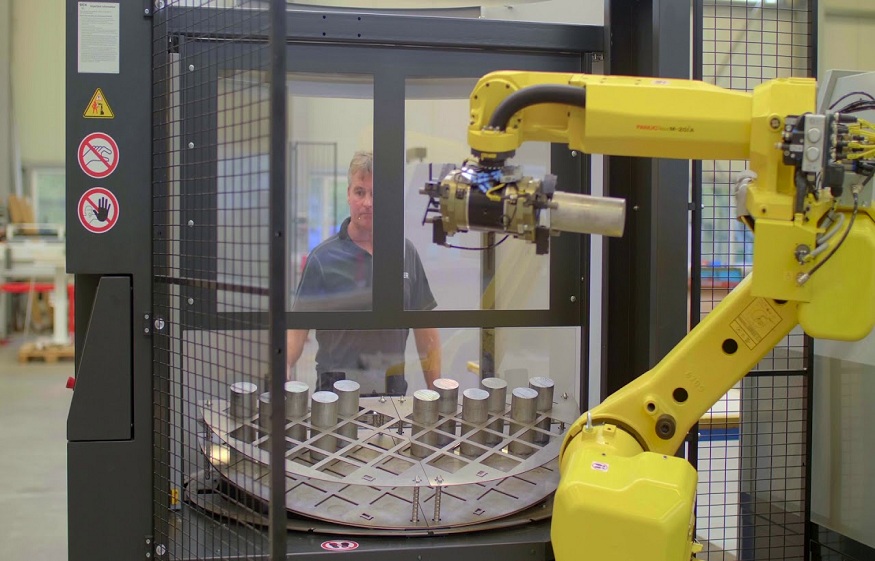How Does Anaesthesia Work, What Are There Risks, And What Other Considerations Should We Consider?

Anaesthesia is a procedure by which we prevent the perception and harmful effects of painful or uncomfortable surgery, medical practice or examination. There are different ways to prevent the patient from noticing the procedure that is going to be performed and, depending on the patient, as well as on the individual himself, one type of anaesthesia or another will be administered, which may be topical, local, regional or general, depending on how it affects the patient—a small part of the body or the whole body. Likewise, there are also different types of anaesthesia depending on whether or not the patient needs to sleep.
For example, if the patient is nervous or a minor intervention is to be performed, superficial sedation can be used. The deep one will be carried out when the patient must be asleep, for example, when the procedure requires him to be in bed. After this sedation, a powerful stimulus will be necessary to wake him up.
General anaesthesia is used to block consciousness and control cardiac and respiratory functions, and paralyse muscles, as well as the autonomic nervous system that controls blood pressure, blood glucose, etc. It is used for major surgeries.
How does anaesthesia work?
Anaesthesia intervenes in the function of a type of neuron (those responsible for consciousness, perception of pain or movement) both in the brain and the peripheral nerves, temporarily reducing or cancelling their functions.
It is a safe procedure and administered by highly qualified professionals, so it is not common for complications to exist. Problems can be caused by helping in less quantity, and the patient suffers while undergoing surgery, or more and recovery takes longer or requires additional support instruments.
What do they give us to wake us up?
Usually, the drugs we use for anaesthesia are continuous short-term anaesthetics, so it is only necessary to stop administering them for the patient to recover. However, antagonists can also be used. Drugs that act on the same receptors as anaesthetics (for example, those neurons) displace the anaesthetic drug and make it easier for it to stop working so the patient wakes up.
Can it happen that we feel what is happening to us?
Unfortunately, everything is possible. However, the possibility that we feel everything is being done to us and that we cannot communicate is very remote, thanks to the new anaesthetic depth monitors that currently exist.
Total anaesthesia includes loss of consciousness and sensitivity, analgesia, autonomic blockade, amnesia, and muscle relaxation. One of these effects could be produced with more intensity than the others, and this situation could occur. It’s called intraoperative awareness, and it can be harmful if it’s involuntary or beneficial when doing an awake type of surgery to ensure critical parts of the brain aren’t damaged.
How many hours can the body remain anaesthetised?
You could be indefinitely anaesthetised. Anaesthesia is not only responsible for disconnecting the patient but also for keeping him in a position to reactivate at the end of the operation. It is true that the longer the duration of anaesthesia, the longer recovery will take. It would be like when we sleep a lot after travelling by plane or partying. When waking up, we would need more time than if the dream had been the normal one every day.
How does our body expel anaesthesia?
The anaesthetic is metabolised. It is degraded in the body almost entirely so that it does not come out anywhere. The liver and kidney break down drugs that are then eliminated through urine or faeces, just like food or liquids that we take by mouth or ibuprofen or paracetamol. They do not remain in the body forever, and we do not eliminate them as they are, but instead break down and are eliminated practically or inactive, that is, without any mechanism of action.
Does it cause any damage to the liver or kidneys?
Not a priori. Like other drugs, they are degraded through the liver or kidney and at regular doses, they do not cause damage. Now, if there is an overdose, it can be dangerous. Everything, in excessive amounts, damages our bodies.
Is there an age limit?
No. What is always done is to evaluate the risk jointly and the benefit in case it is worth assuming in each circumstance. Sometimes patients have problems that can be treated without surgery. Perhaps what happens is that they do not want to be operated on. All this is something that should be assessed jointly between the patient and the doctor.
Why is a preoperative performed?
The preoperative evaluation serves to prevent possible known or unknown risks. It would be something like checking the car before you hit the road. Continuing with the automotive example, a new vehicle hardly needs more than a look. An old car may need a complete service and a considerable change of fluids or other elements.
The analyses that are traditionally requested are a cell count with biochemistry, glucose, creatinine, urea, etc., (to assess the state of the vital organs), blood coagulation, and an electrocardiogram to see the heart and a chest X-ray. Lately, we only ask for the X-ray in the case of existing known cardiopulmonary pathology. An electrocardiogram is requested in people with heart disease or older than 50 or 60. However, it can vary between hospitals.
Regarding analytics, all patients are asked, from children to adults. However, lately, the possibility of excluding the little ones is being evaluated if they are minor interventions.
Perhaps we will reach a situation in which the anesthesiologist assesses the patient and tests are not requested if they are healthy children and the intervention is minor.
Why should we go fasting?
Many drugs can upset the stomach and cause nausea or vomiting. If we have an empty stomach, the incidence of these complications is lower, and if they do appear, they are less essential and less dangerous as there is nothing or almost nothing to vomit. This avoids the risk of aspiration of vomit through the lung, which can be very serious.
For the same reason, we cannot drink water either. This, although it is absorbed faster, also remains in the stomach and mixes with gastric acids.
And the nails? Can we have them painted?
In the operating room, we assess the colour of the skin and the circulation throughout the body, also in the fingers, which tells us how the body works, its temperature and its circulation; In addition, we use vital function monitors that are placed on the finger, and if the nails are painted, the information they give us is distorted.
Why do we have to wash our hair before an operation?
You should go to an operation clean as many germs live on our skin and hair. If we open an incision, the skin barrier, which serves as protection, would be open, and microorganisms could enter and cause an infection. That is why a toilet is requested. If the foot is operated on, it is not relevant to wash the head. On the other hand, the soap should not be unique, just the one we use at home. The operating room, the area to be operated on, is cleaned with special detergents or antiseptics.
And about the earrings, should we take them off too?
In the operating room, an electric scalpel harnessed electricity to cut or coagulate wounds. If we bring metallic objects in contact with the skin, they heat up and can cause burns. An earring or piercing (metallic) would burn the site if an electric scalpel were used.
What other considerations should we take into account?
We must provide all our clinical information:
If we have had illnesses.
If we take medications.
If we have had surgery before.
If we are prone to cold, heat, or dizziness.
If we have allergies, even if they are not to medications.
All this information can be relevant to avoiding risks.





